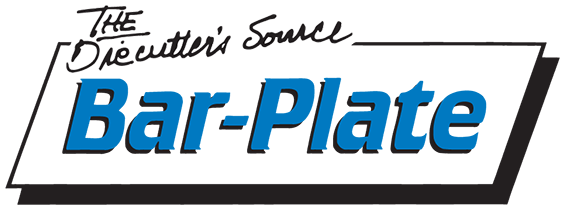Debt-Free Living: Overcoming Financial Challenges with Tevan Asaturi
Introduction
Debt-free life entails liberating yourself from financial obligations. It’s about taking charge of your finances, decreasing stress, and enjoying a more comfortable lifestyle. Overcoming financial obstacles is critical to obtaining this independence.
Who is Tevan Asaturi?
Tevan Asaturi is a financial specialist who has helped people manage and reduce debt for many years. He has helped numerous people achieve financial security and freedom. Tevan’s approach is realistic and individualized, making his advise both understandable and effective.
An Overview of the Importance of Financial Freedom
Debt can have a significant impact on one’s personal finances and well-being. It can increase stress, limit financial prospects, and impede personal objectives. Achieving debt-free living has various advantages, including improved mental health, more financial security, and the potential to invest for future aspirations.
I. Understanding Debt and Its Impact
A. Debt Types: Secured and Unsecured
Mortgages and vehicle loans are examples of collateral-backed lending.
Lower interest rates, but you risk losing your asset if you default.
Unsecured Debt:
There is no collateral (such as credit cards or personal loans).
Higher interest rates mean increased risk for the lender.
Good Debt Versus Bad Debt
Good Debt:
- Borrowed money to make long-term investments (such as school loans and mortgages).
- Can enhance financial situation in the long run.
Bad Debt:
- Borrowed money for depreciating assets (e.g., credit card debt, payday loans).
- Frequently carries exorbitant interest rates and offers no long-term value.
B. Debt’s Psychological and Financial Impacts, including Stress and Mental Health
Debt can lead to substantial tension and distress. It can cause insomnia and have a negative impact on one’s mental health. Talking to a financial advisor, setting a repayment plan, and getting assistance from family and friends are all coping tactics.
Impact on Financial Goals
Debt can impede financial progress. It reduces your ability to save and invest. Long-term consequences include postponing retirement and failing to reach financial goals.
II. The Principles of Debt-Free Living
A. Evaluate your financial situation
Calculate Your Debt
Make a complete list of all your debts. Include information such as the balance outstanding, interest rates, and due dates. Understanding the overall debt amount is the first step toward resolving it.
Analyze your income and expenses
Prepare a precise budget. Track your income and expenses to uncover places where you might save money. This helps you manage your cash more successfully.
B. Set Financial Goals
Short-term versus long-term goals
Setting reasonable goals is critical. Short-term goals could include paying off a certain credit card. Long-term goals could include saving for retirement. Both sorts are essential for financial stability.
Creating a Debt Repayment Plan
Prioritize debts according to interest rates and quantities. High-interest loans should be addressed first. The debt snowball and debt avalanche methods are two such strategies.
III. Strategies for Debt Relief
A. Budgeting and Expense Management

A. Creating a realistic budget
An efficient budget is both realistic and sustainable. Include all necessary expenses and set aside funds for debt repayment. Use tools and apps to keep track of your expenses.
Reducing unnecessary expenses
Determine which non-essential expenses you can eliminate. This could involve dining out, subscriptions, or impulse purchases. Reducing these can release funds for debt repayment.
B. Increasing Income
Side gigs and part-time jobs
Consider alternative revenue streams. Side hustles, such as freelance employment or part-time jobs, can increase your income. Balance additional work with your principal obligations.
Negotiating raises and promotions.
Do not be scared to ask for a raise. Showcase your value at work and negotiate your wage. This increased money might be used to pay off debt.
C. Debt Repayment Strategies
Debt Snowball Method
Focus on paying off the smaller debts first. Once it has been cleared, proceed to the next smallest. This strategy produces immediate results and increases drive.
Debt Avalanche Method
Prioritize paying off the loan with the highest interest first. This strategy reduces the amount of interest payable over time.
Debt Consolidation
Combine numerous debts into a single loan at a cheaper interest rate. This streamlines payments and may minimize overall interest paid. However, be aware of potential downsides such as fees and extended repayment durations.
D. Avoiding Common Pitfalls
The Danger of Minimum Payments
Minimum payments extend the debt and raise the amount of interest paid. Always try to pay more than the minimum.
Avoiding New Debt
Avoid the urge to incur extra debt. Create a financial safety net to handle emergencies without using credit.
IV. Tevan Asaturi’s Strategy for Debt-Free Living
A. Personal Financial Counseling
Tevan Asaturi provides personalized financial advice. The initial session entails evaluating your financial condition and developing personalized debt payback programs.
B. Financial Education and Empowerment.
Tevan leads workshops and seminars on a variety of financial issues. These sessions provide useful information and enable you to make sound financial decisions. He also recommends books, articles, and internet tools.
C. Long-term Financial Planning.
Creating an Emergency Fund
An emergency fund is critical. It serves as a safety net for unexpected bills. Aim to save three to six months of living expenses.
Investing for the Future Combine debt repayment and investing. Begin with fundamental investment methods and gradually expand to a diversified portfolio.
V. Real-life Success Stories
A. Success Stories of Debt-Free Living
Success Story 1
This person owed a lot of money on their credit cards. They devised a repayment strategy, reduced superfluous costs, and discovered new sources of revenue under Tevan’s supervision. They were debt-free within two years.
Success Story 2
Another customer had student loans and auto expenses. Tevan assisted them in prioritizing their bills and using the debt avalanche strategy. They paid off their obligations while also saving for the future.
B. Client Testimonials of Tevan Asaturi
Customer Testimonial 1
This client appreciates Tevan’s personal approach. His advice enabled them to better grasp their financial condition and take control of their debt.
Client Testimonial 2
Another client appreciates Tevan Asaturi practical advice and ongoing support. His strategies had a tremendous impact on their financial situation.
Conclusion: Summary of Key Points
We’ve discussed the necessity of debt-free living, different sorts of debt, the psychological impact of debt, practical debt-reduction measures, and Tevan Asaturi’s individualized approach.
Final Thoughts on Overcoming Financial Challenges
Taking control of your finances is powerful. Long-term benefits of debt-free living include better mental health, financial stability, and the capacity to save for future aspirations.
We’d love to hear about your debt-related experiences and how you handled financial issues. Please leave your stories and tips in the comments.
Keep up with Tevan’s newsletter. Get the most recent financial tips and advice. Are you ready to take charge of your financial future? Schedule a free consultation with Tevan Asaturi’s consultancy firm Asaturi LLC and begin your journey to debt-free life now.

